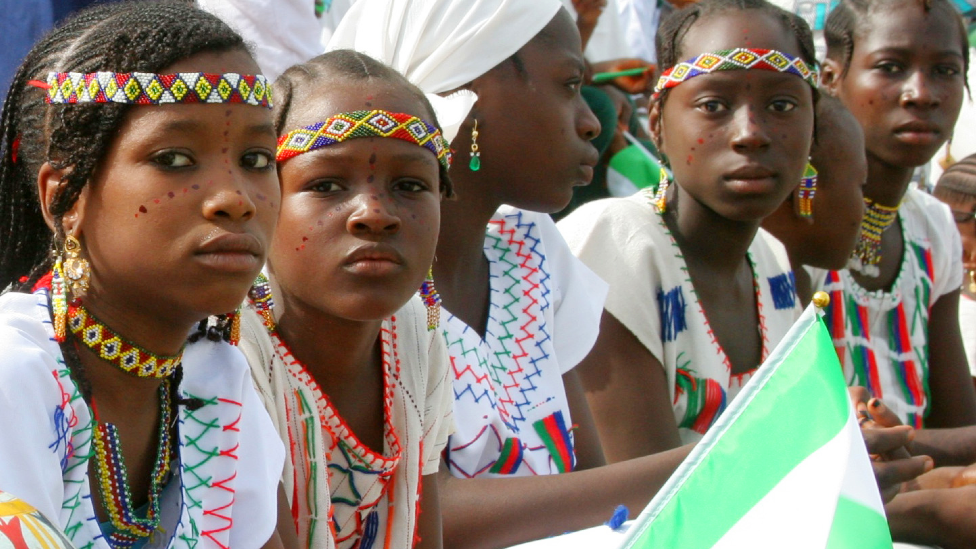Nigeria protests: Millions placed under curfew as violence spreads
- Published
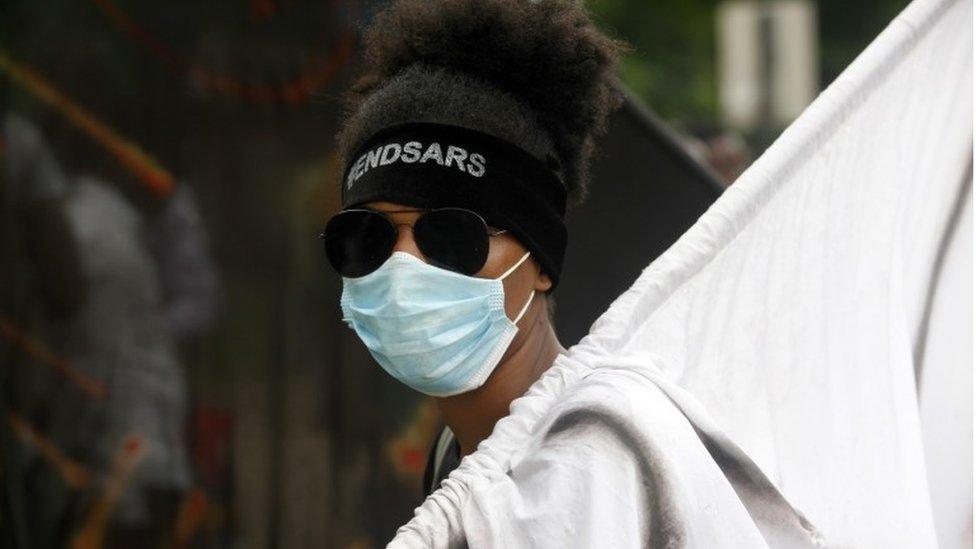
Nigeria has been hit by protests against police brutality
Nigeria is extending curfews beyond the city of Lagos as anti-riot officers struggle to quell violence following protests against police brutality.
A number of people are reported to have been shot at a protest in Lekki, a suburb of the city.
A 24-hour curfew planned for Lagos, a key commercial hub and Africa's most populous city with an estimated 20 million residents, was delayed to allow commuters to return home.
Other regions are now imposing curfews.
Following reports of widespread violence across Nigeria, the city of Jos and Ekiti state said curfews would come into force later on Tuesday.
The southern Edo state imposed a curfew earlier, after officials said two police stations had been targeted, with attackers burning cars and stealing police equipment.
The protests began with calls for a much-hated police unit, the Special Anti-Robbery Squad (Sars), to be disbanded.
President Muhammadu Buhari did then dissolve the unit, which has been accused of illegal detentions, assaults and shootings, on 11 October.
But the demonstrators have called for more changes in the security forces as well as reforms to the way the country is run.
Lagos state Governor Babajide Sanwo-Olu has said that criminals have hijacked the protests "to unleash mayhem".
He said he had "watched with shock how what began as a peaceful #EndSARS protest has degenerated into a monster that is threatening the wellbeing of our society".
"Imposing this curfew was difficult, especially as we have just returned from a Covid-19 required lockdown," he wrote on Twitter.
"This curfew will allow security officials to immediately restore order to the state, arrest thugs and miscreants that have disrupted the peace."
Allow X content?
This article contains content provided by X. We ask for your permission before anything is loaded, as they may be using cookies and other technologies. You may want to read X’s cookie policy, external and privacy policy, external before accepting. To view this content choose ‘accept and continue’.

The curfew was initially scheduled to come into force at 16:00 local time (15:00 GMT), but protesters in the Lekki and Alausa parts of Lagos refused to disperse.
They sang the national anthem at the Lekki toll gate - one of the main roads into Lagos's business district.
As darkness fell, there were reports of shootings as security forces confronted hundreds of protesters.
Amnesty International Nigeria tweeted that it had "received credible but disturbing evidence of excessive use of force occasioning deaths of protesters at Lekki toll gate".
The US consulate in Lagos announced it had closed on Tuesday and would remain shut on Wednesday.
Earlier, Nigeria's chief of police Mohammed Adamu ordered the nationwide deployment of riot officers to try to end two weeks of increasingly violent protests.
Mr Adamu said in a statement that the Police Mobile Force (PMF) was needed "to protect lives and property of all Nigerians and secure critical national infrastructure across the country".
He also ordered the massive deployment of police operatives to strengthen security around prisons.
The announcement of the curfew for Lagos state came after reports that people had set fire to a police station in the Orile district.
Videos posted on social media show the police station burning, with people standing outside cheering.
The police in Lagos said that "all security agencies have deployed adequate personnel to take charge and enforce the curfew across the state".
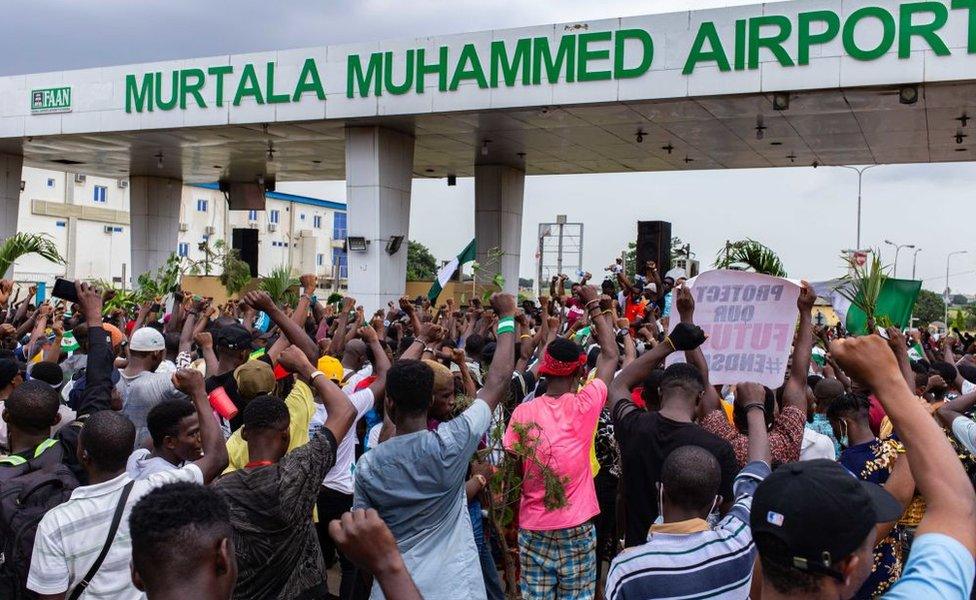
Demonstrators blocked the route to Lagos' international airport on Monday
On Monday, people attacked police in the Yaba area of Lagos, destroying police vehicles and chasing officers away.
In some other areas, people have been seen erecting roadblocks and charging motorists a fee.
Violence has also been reported in other parts of the country.
The curfew in Edo came after jailbreaks at two prisons.
- Published17 October 2020
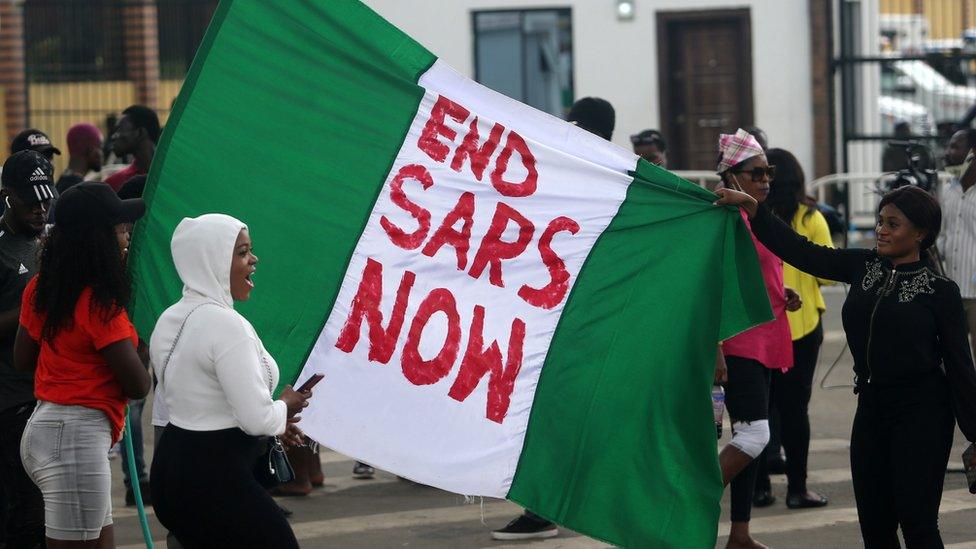
- Published13 October 2020
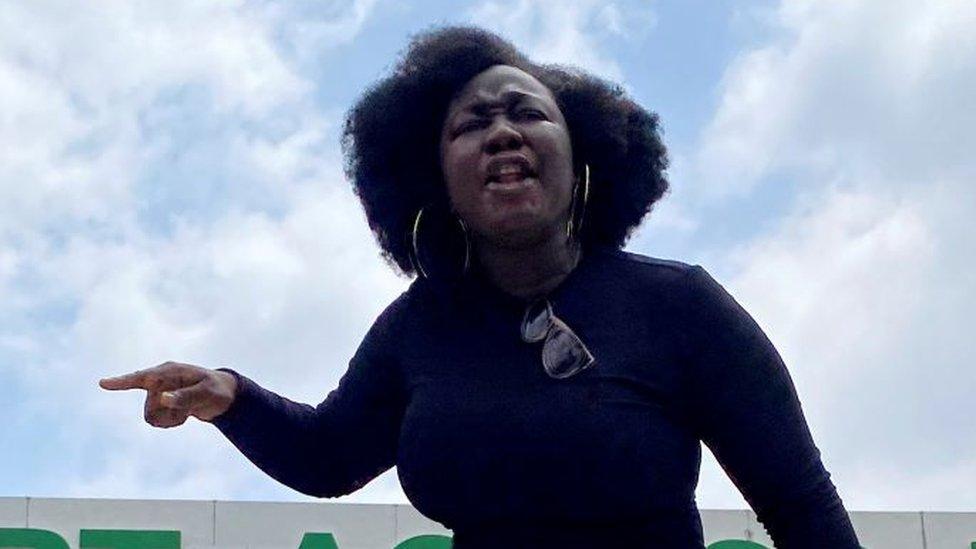
- Published1 October 2020
